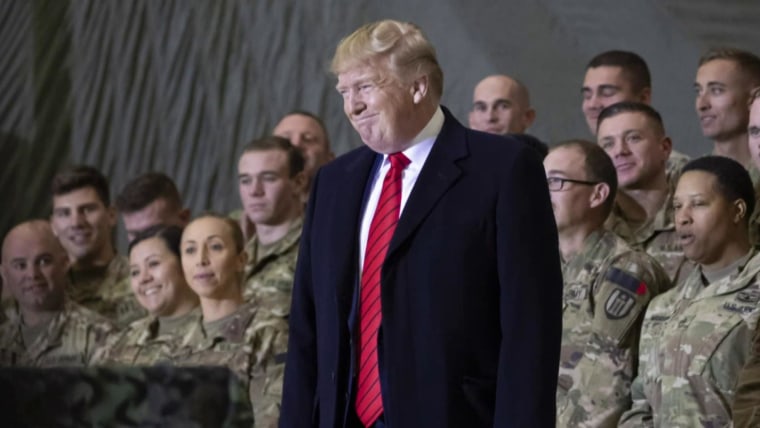For months, the basic contours of an agreement between the United States and the Taliban in Afghanistan were in place: American troops would withdraw, and in exchange, the Taliban would provide counterterrorism assurances. (Afghanistan's government was excluded from the process.)
In September, however, Donald Trump abandoned the talks -- for reasons he struggled to explain -- after his plan to bring Taliban leaders to Camp David around the anniversary of the 9/11 attacks turned into a political fiasco.
On Thanksgiving, the president made a surprise trip to Afghanistan and announced that the negotiations he ended were now back on. And while that was certainly a major development, Trump added a strange twist, demanding a cease-fire that hadn't been part of the Trump administration's position. As the New York Times reported, this had the effect of confusing practically everyone:
Despite a sense of relief at the prospect of resuming talks to end the 18-year conflict, Western diplomats and Taliban leaders were scrambling to figure out whether Mr. Trump had suddenly moved the goal posts for negotiations.They were particularly confused by his remarks, made during an unannounced Thanksgiving visit to Afghanistan, that the United States was once again meeting with the Taliban to discuss a deal, but that "we're saying it has to be a cease-fire."Demanding a cease-fire would amount to a big shift in the American position and require a significant new concession from the Taliban -- one that the Americans have little leverage to extract.
After a bilateral meeting with Afghan President Ashraf Ghani, Trump declared, "The Taliban wants to make a deal. And we're meeting with them, and we're saying it has to be a ceasefire. They didn't want to do a ceasefire, but now they do want to do a ceasefire, I believe. And it will probably work out that way. And we'll see what happens. But we've made tremendous progress."
No one had any idea what he was talking about, and the idea that the Taliban "wants to do a ceasefire" appears to have been made up entirely.
In fact, though Trump pointed to "tremendous progress" that he suggested has already occurred, the Washington Post reported, "[O]n Friday neither the Taliban nor the government of Afghan President Ashraf Ghani indicated that a cease-fire was near, or even being discussed in resumed U.S. negotiations."
It's possible that Trump made a conscious decision to alter the course of the negotiations, ignored the existing diplomatic framework, and added a new element as part of a deliberate shift in strategy.
But given everything we know about Donald Trump and his familiarity with policy disputes and current events, it seems far easier to believe the American president just blurted this out with no forethought. In fact, it's likely the Republican didn't know what his administration's position was, didn't know any of the elements of the recent talks, and didn't know that his comments made a deal less likely.
It's what happens when foreign policy decisions are put in the hands of a post-policy president.
